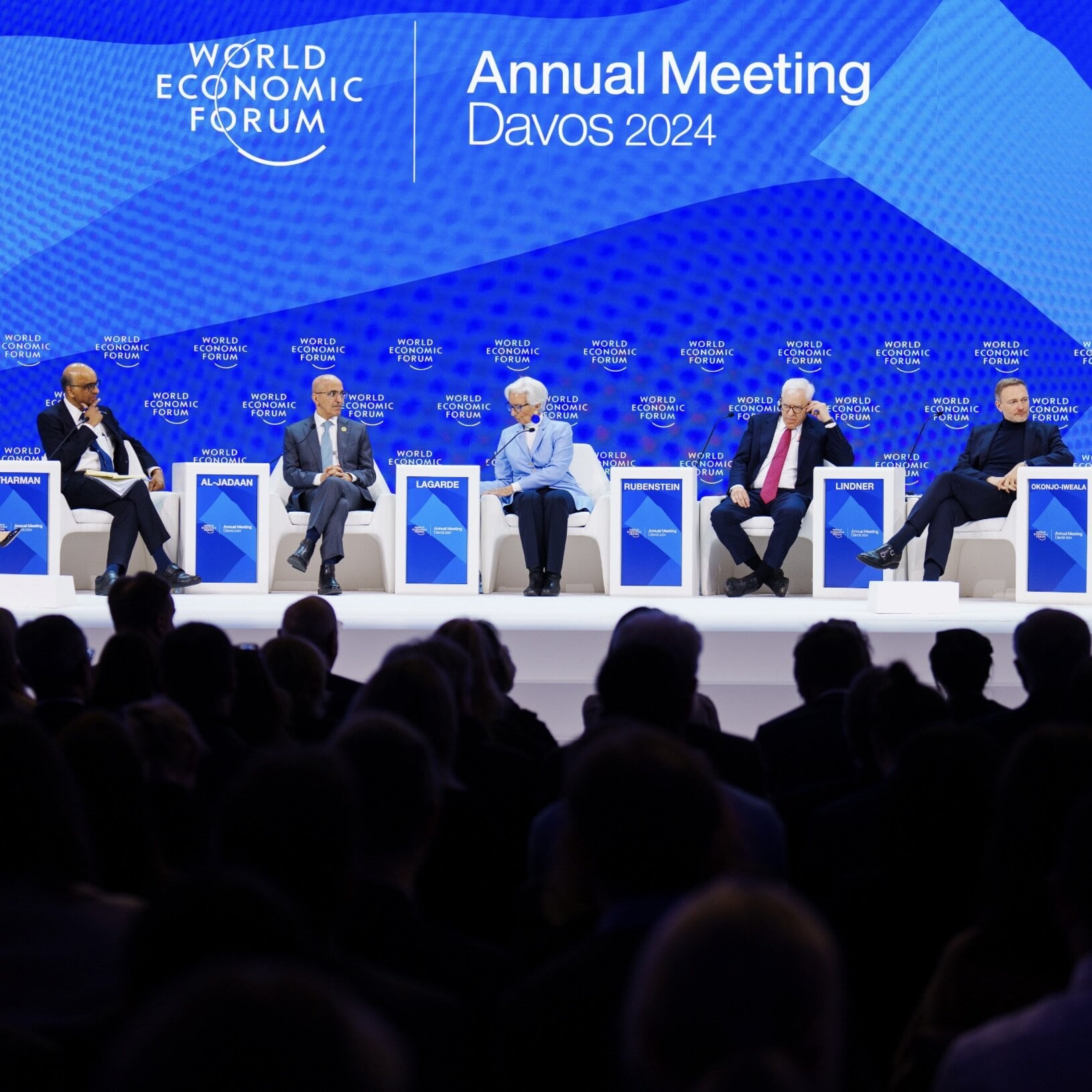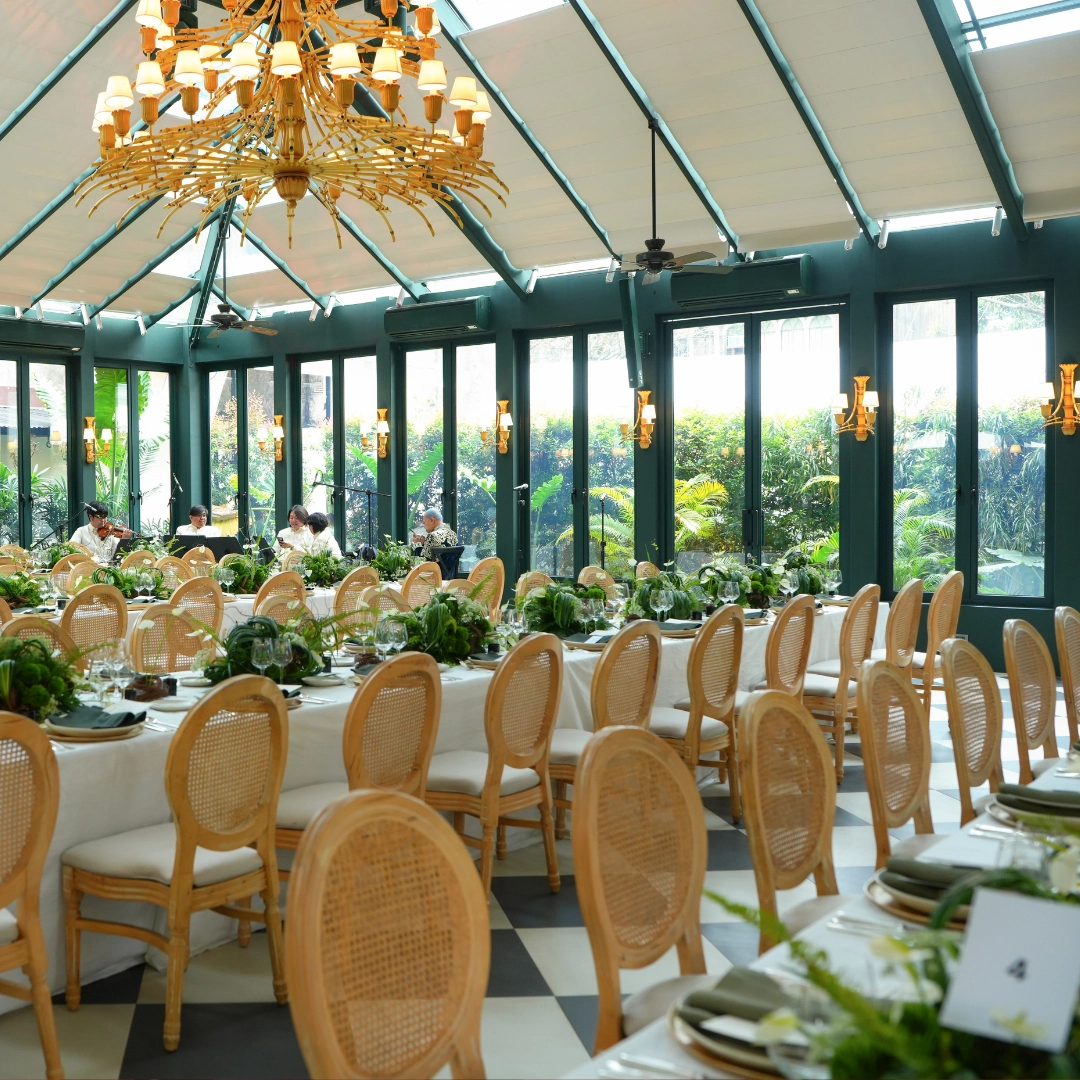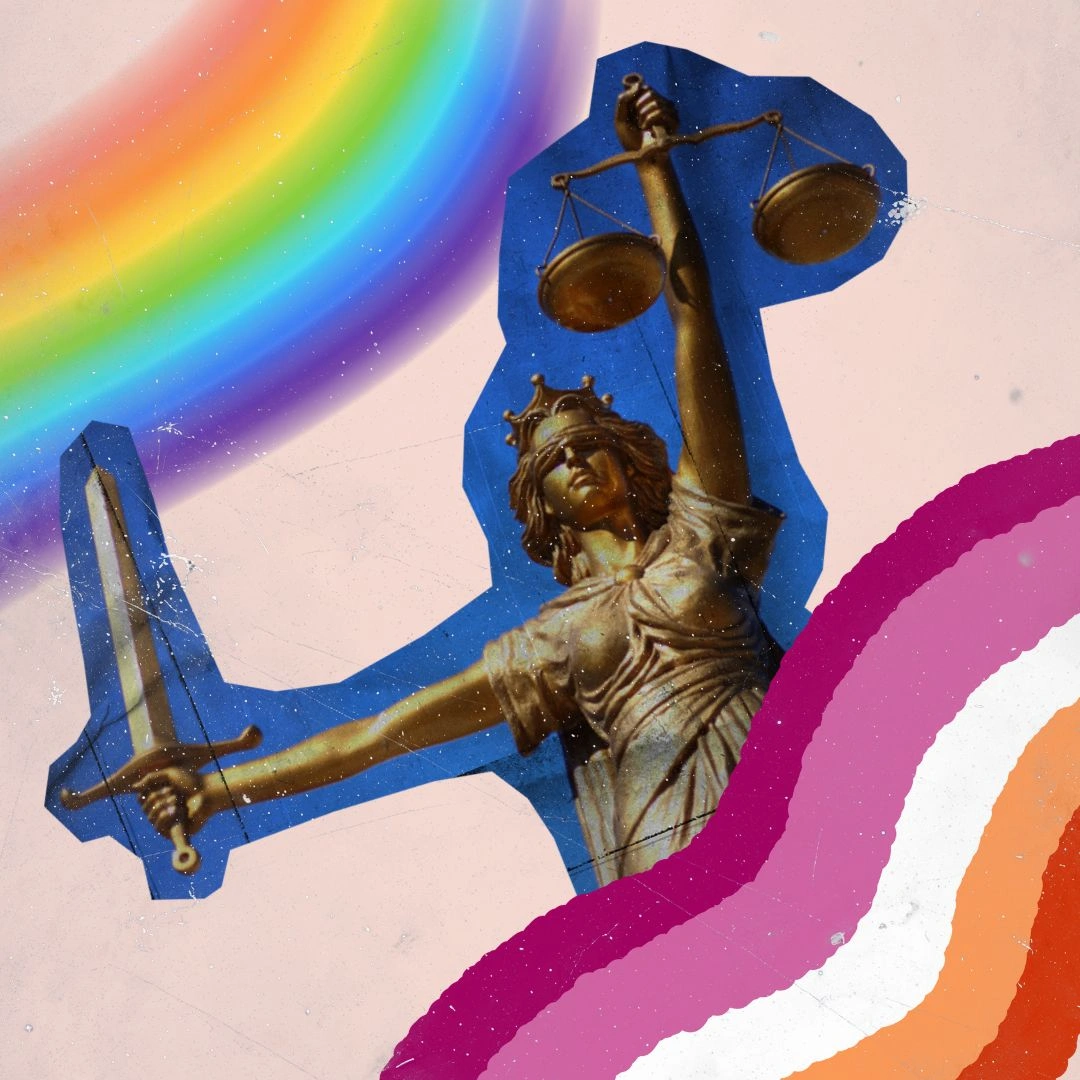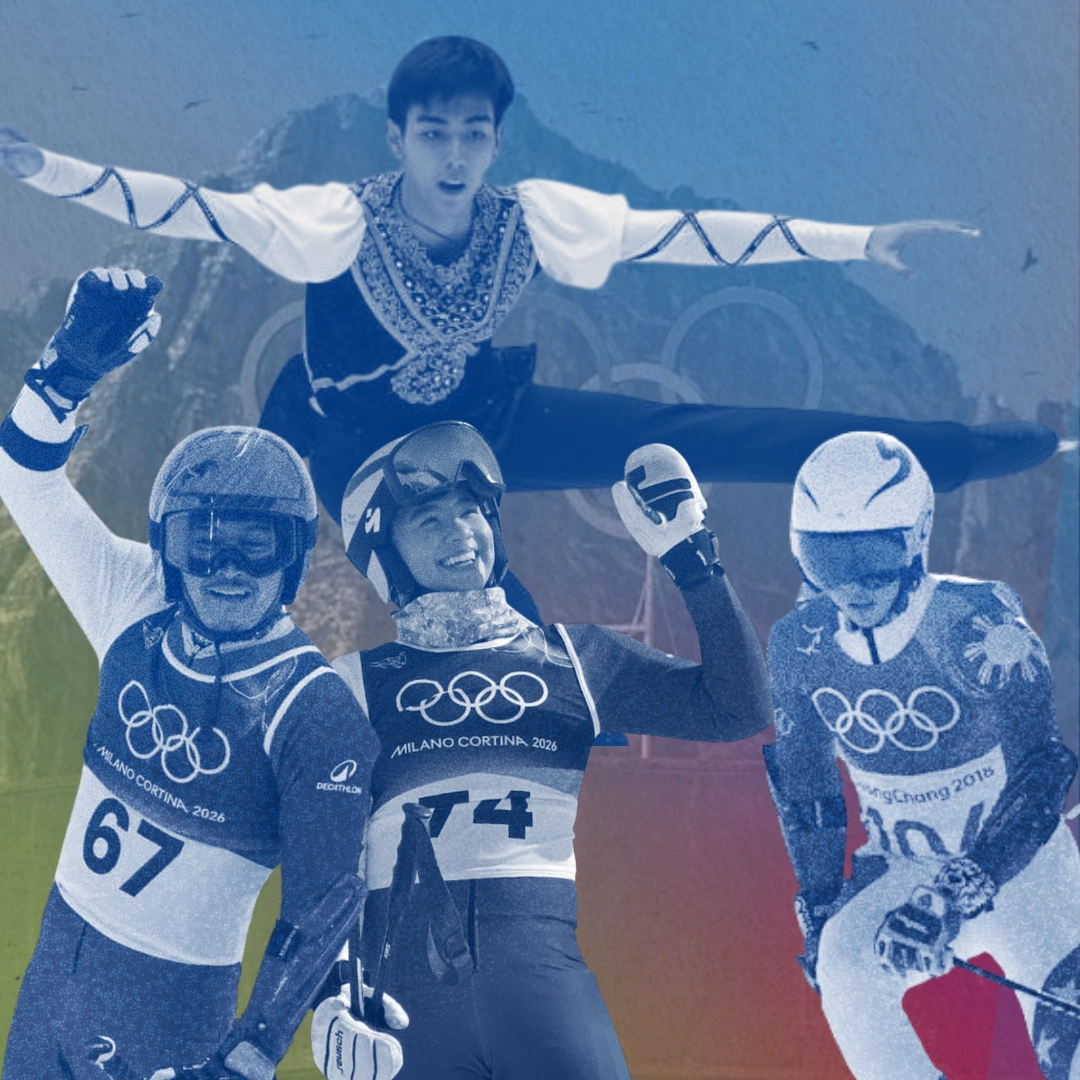The World Economic Forum holds an invite-only, annual meeting in Switzerland, gathering some of the world’s wealthiest and most influential—but what exactly goes on inside the exclusive event?
The ski resort town of Davos in Switzerland is, for the most part, a relaxing getaway and tourist destination—until it starts hosting the World Economic Forum annual event. Every year, the non-profit organization invites a select number of the world’s elite and wealthy to participate in meetings, panels, and discussions that would help address issues and developments in the world today. As the World Economic Forum’s official website puts it: “The Forum engages the foremost political, business, cultural and other leaders of society to shape global, regional and industry agendas.”
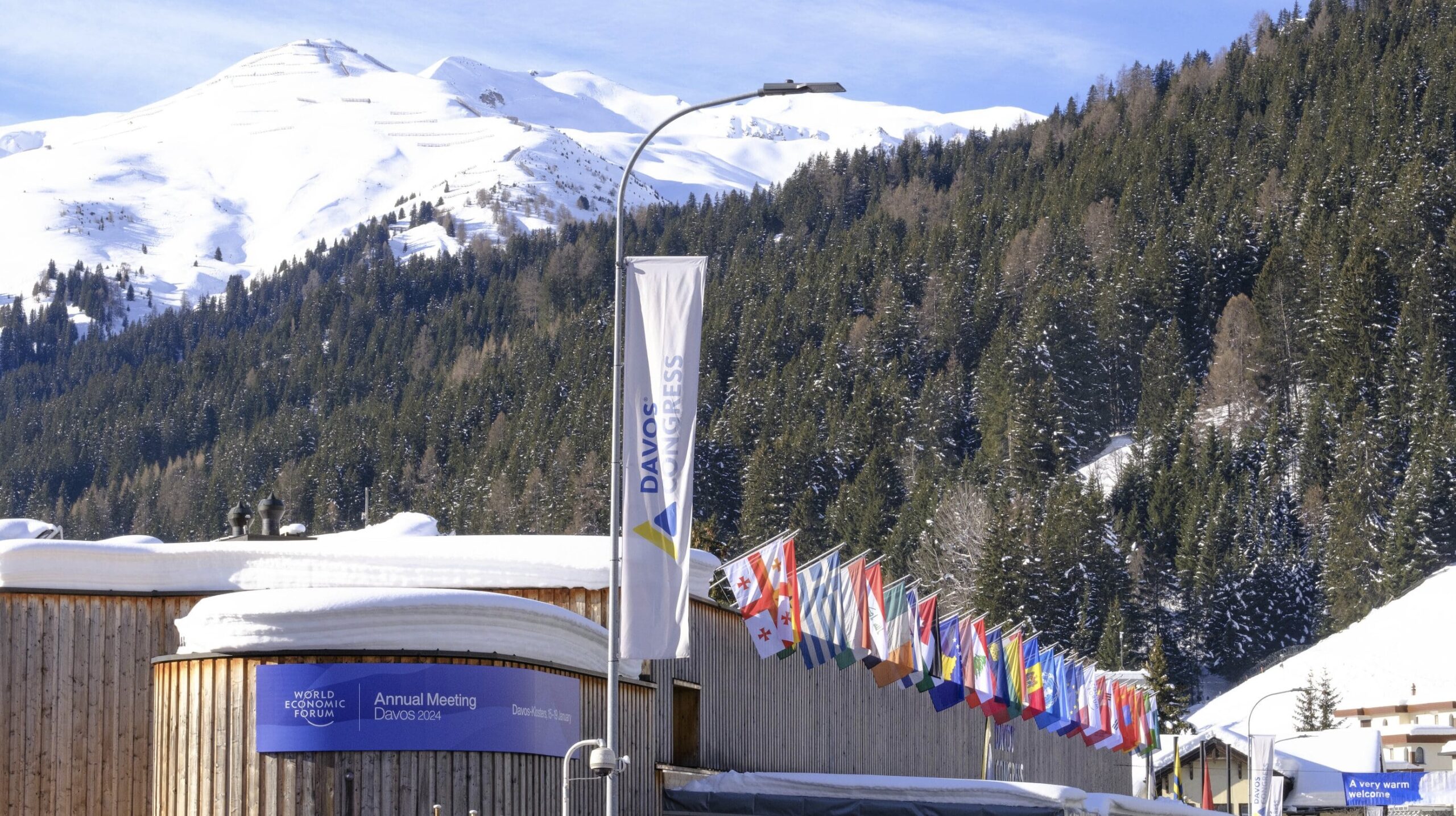
As per David Walsh of Euronews, The World Economic Forum traces its roots to the 1970s, when Swiss-German economist and professor Klaus Schwab wanted to unite individuals from all over the world to help solve political, social, and economic concerns.
Since then, the organization has held its special congress in Davos. The World Economic Forum describes itself as an entity that’s “independent, impartial and not tied to any special interests,” and one that “strives in all its efforts to demonstrate entrepreneurship in the global public interest while upholding the highest standards of governance.”
READ ALSO: The Billionaires’ Code: Life-Changing Lessons From 5 Of The World’s Richest
Gathering the World’s Most Influential
Though many of the world’s millionaires and billionaires usually attend the yearly forum, they’re not the only guests. Luminaries in other industries also participate—even certain celebrities with particular advocacies. This year’s World Economic Forum is no exception. According to a report from Emma Loffhagen of The Standard, Davos 2024 (a shorthand name for the organization’s event), not only invited leaders from 1,000 partner companies, but also public figures, heads of international organizations, academics, and top thinkers.
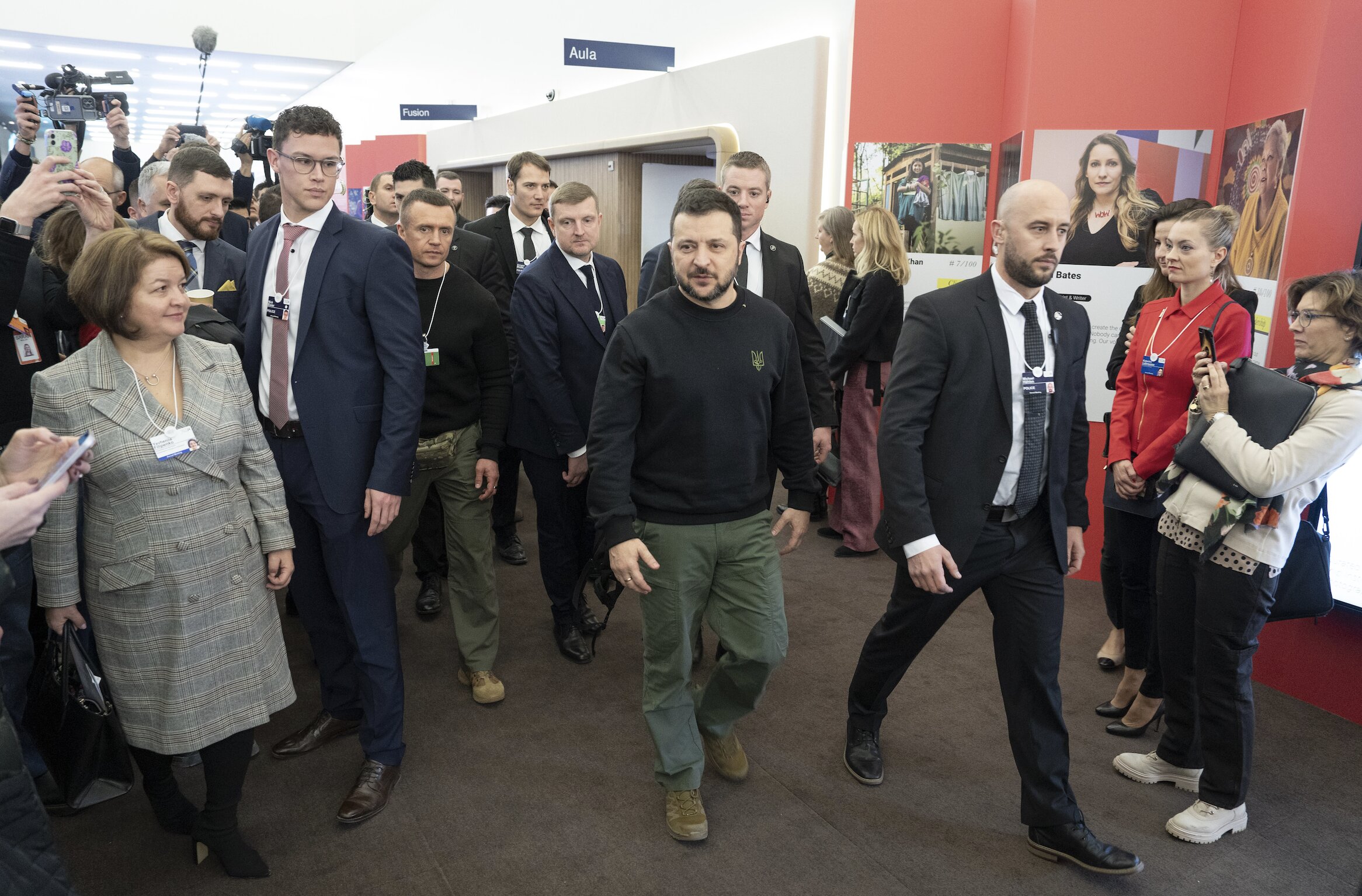
The World Economic Forum held Davos 2024 from January 15 to 19th, with a total of over 2,700 people, adds Loffhagen of The Standard. Among its guests were French president Emmanuel Macron, China’s 8th Premier Li Qiang, Ukrainian president Volodymyr Zelenskyy, and the UK’s chancellor Jeremy Hunt. Though many major political leaders have attended the forum in the past, America’s Joe Biden, China’s Xi Jinping, Russia’s Vladimir Putin, and the UK’s Rishi Sunak hadn’t attended this year’s edition.
Besides holding its fare of discussions and panels, the forum also allows its attendees like companies and even countries to set up booths where they can promote their services and seek investment opportunities, as per Walsh of Euronews.
An Eclectic Mix of Individuals
Other notable guests from previous iterations of the Davos congress include climate activist Greta Thunberg, renowned musician Mick Jagger, and tech giants like Bill Gates.
For Davos 2024, Oscar award-winning actress Michelle Yeoh, Grammy award-winning musician Nile Rogers, and acclaimed architect Francis Kéré were in attendance and won the forum’s Crystal Awards for their respective advocacies and initiatives. Yeoh received the award for her admirable contributions, not only as an actress but also as a United Nations Development Program ambassador. Yeoh has also been raising awareness for lesser-known social problems like reckless driving, as per Vicky McKeever of CNBC.
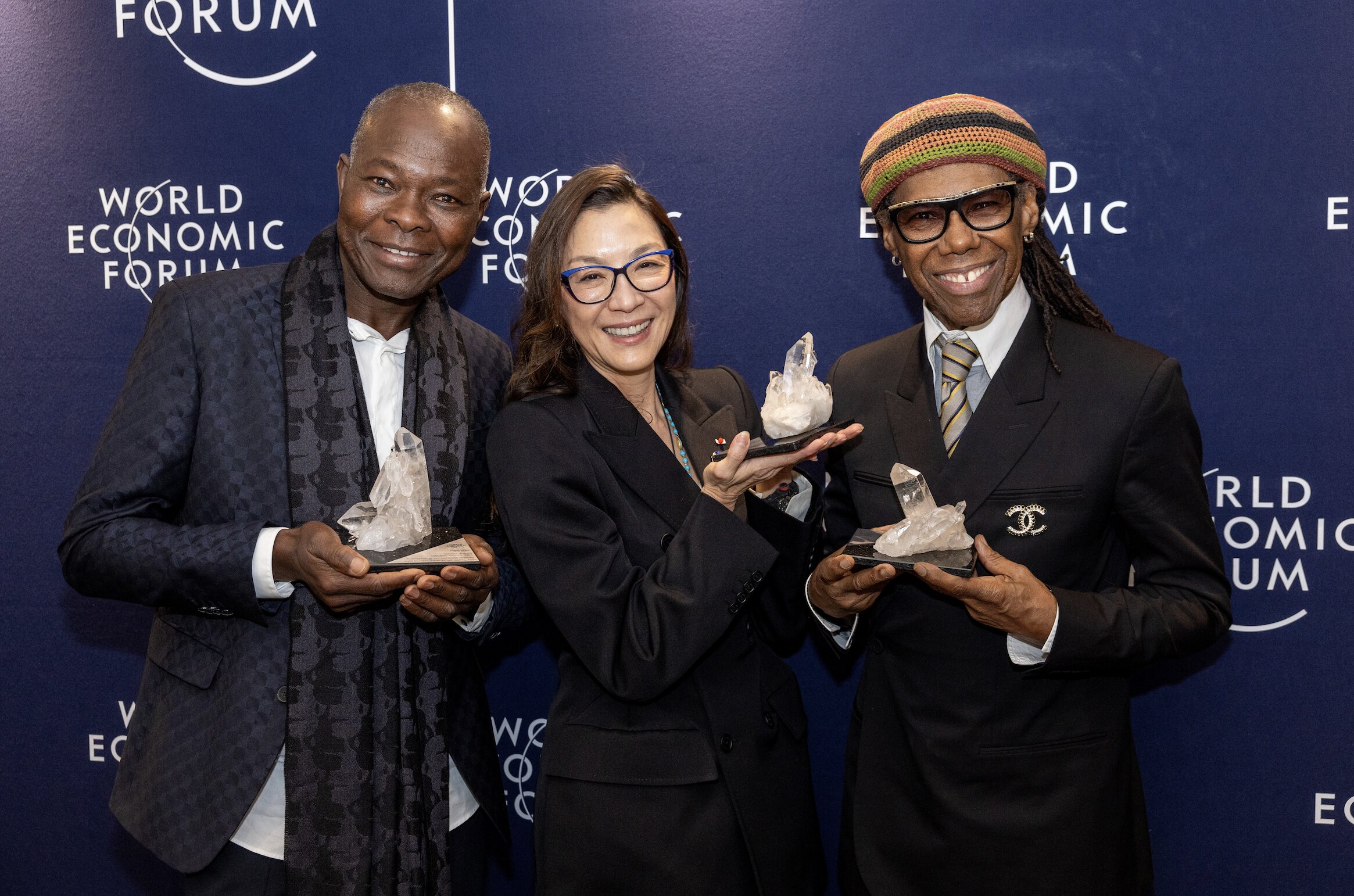
Meanwhile, Nile Rogers has continuously been fighting for a more peaceful world, supporting initiatives that uplift the youth, combat racism, and aim to create a more inclusive space for marginalized communities overall, reports CNBC TV18. As for Francis Kéré, the Burkinabé-German architect has spent years setting up initiatives to support the Gando community of Burkina Faso through projects that focus on the environment, education, and heath. This includes providing sustainable and innovative design solutions for various public infrastructures, adds CNBC TV18.
Rebuilding Trust
“Rebuilding Trust” is the theme for Davos 2024, which as the name suggests, centers on bolstering the many aspects that comprise society. As per a feature from the World Economic Forum, the key points around this theme included discussions surrounding climate change and the environment, global security, energy transition strategies, and plans for economic growth across various nations and sectors.

The inclusion of artificial intelligence is quite new, and paints a picture of the rapidly-evolving technology that’s drastically shaping society today. As per the forum’s recap, panelists agreed that AI presents countless possibilities, however “training, skills and understanding will be essential if the global community is to take advantage [of it].”
Those interested in the many discussions that took place over the five-day event can find summaries, highlights, and key takeaways on the World Economic Forum website. All together, this year’s theme—and its many interrelated global topics—aim to unite society, encouraging cooperation amid an increasingly divisive world.
Criticisms on the One Percent
That said, as one would expect from an event dealing with many of the world’s wealthiest corporate leaders and most powerful individuals, the World Economic Forum has drawn its fair share of criticisms. As Eric Spitznagel of the New York Post and Emma Loffhagen of The Standard point out in their respective features on the event, people have called out the glaringly contradictory nature of the world’s one percent trying to solve problems that many of them created.
Billionaires aiming to brainstorm ideas that would benefit the environment amid a climate crisis have attended the forum in their own private jets. As per Spitznagel, an analysis by the Air Charter Service found that a total of 1,500 individual private planes landed in Davos during the forum’s 2019 edition.

Spitznagel adds that journalist Peter S. Goodman has been attending the forum each year since 2010, and released a book entitled Davos Man: How Billionaires Devoured the World. In it, Goodman chronicles his many experiences, including seeing venture capitalists who just participated in a panel on human trafficking “fist-bumping over having scored invites to the bacchanal thrown by a Russian oligarch who flew in prostitutes from Moscow.”
In fact, Davos has attracted a predominantly male and white demographic over the years, according to Loffhagen; so much so that many affluent men have earned the nickname “Davos Man.”
A Double-Edged Sword
That said, the forum isn’t entirely talk and show. It’s a double-edged sword; though some attendees may not properly represent its meaningful intentions, one can’t deny the platform’s ability to gather a global audience—which makes it a mighty tool, if those with the ability to better society can wield it properly. There have been moments in history where Davos has shown its ability to be a catalyst for more positive change, as David Walsh mentions in a feature for Euronews.
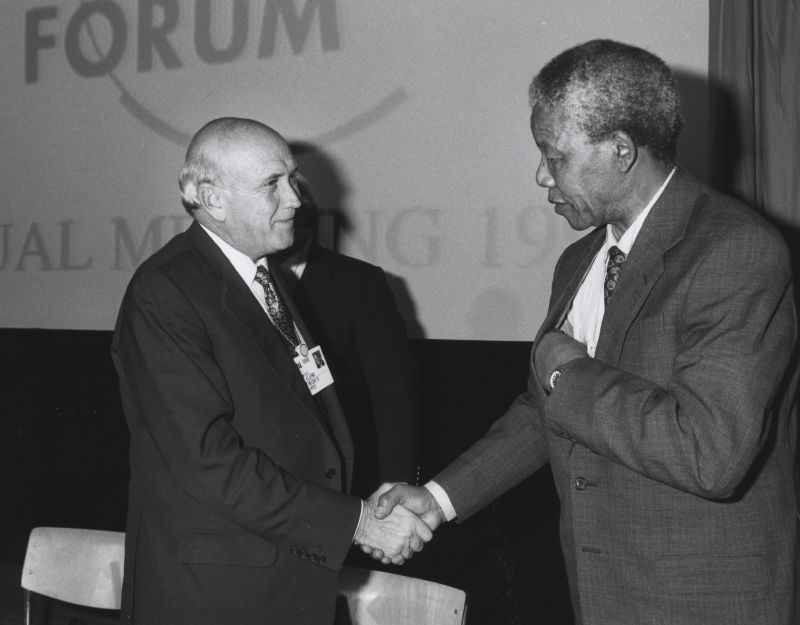
For example, 1988’s Davos Declaration marked the beginning of a new era for Greek and Turkish relations, as it prevented tensions from escalating between the two countries. Nelson Mandela’s 1992 Davos appearance and address also helped bolster the movement towards ending South Africa’s apartheid. Then there’s Davos’ Global Alliance for Vaccines and Immunization (Gavi), which started in 2000 and since then has provided 760 million children around the world with access to vaccines, as per its official website.
The Potential for a Better World
As a more recent example, this year’s edition of the Davos congress included a special address by Ukraine’s Volodymyr Zelenskyy, who urged allies and business leaders to invest in his country’s private sector to help more citizens gain jobs amid a harrowing war.
“If we can make reforms and fight corruption, and our GDP is growing, all while we are at war, it means you can trust in us, you can invest in us,” he told the audience. “To bring peace closer, we need you in Ukraine to build, to reconstruct, to restore our lives. Each of you can be more successful with Ukraine.”
As the old adage goes, with great power comes great responsibility. The yearly Davos forum is a stage in which the most powerful and influential people in the world are given the chance to contribute to its betterment—one can only hope they use this opportunity to the fullest.
Banner photo from the World Economic Forum website.
